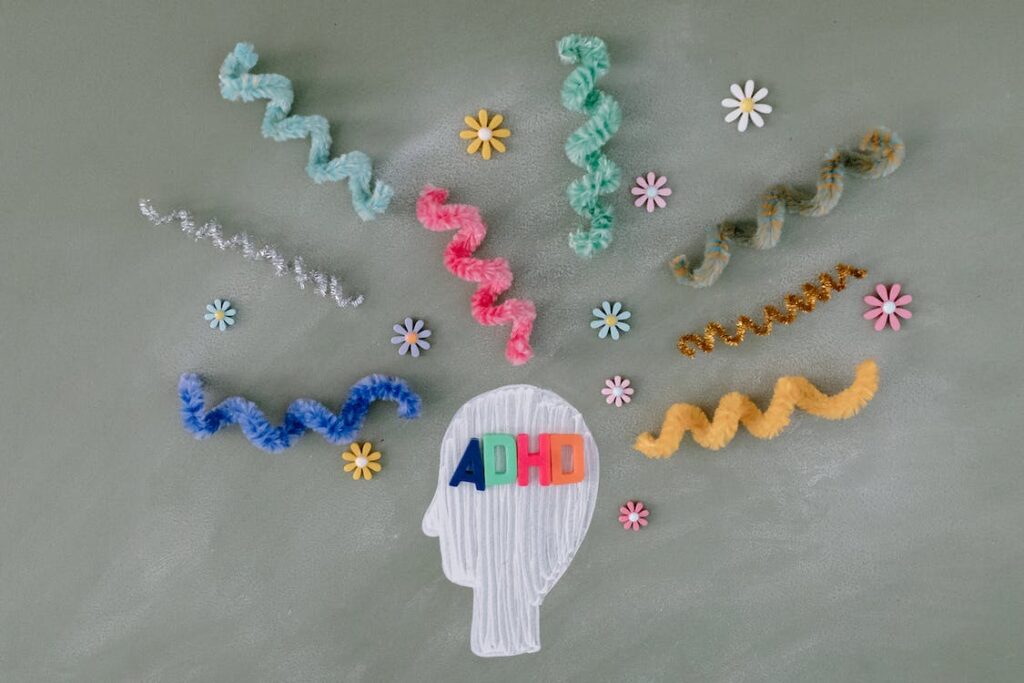In a world where distractions are aplenty and attention spans run dangerously low even for the average person, having a neurodevelopmental disorder like ADHD (Attention-Deficit/ Hyperactivity Disorder) can be incredibly challenging.
ADHD is a chronic condition that affects millions of children. According to Healthline, there has been a 42 percent increase in ADHD diagnoses between 2003 and 2011. And while the average age of diagnosis is 7 years old, ADHD also affects adults over the age of 18.
What is ADHD coaching?
ADHD coaching is a relatively new field that has become more prominent in recent years. As a specialty within the broader field of coaching, ADHD coaching is a practical intervention that specifically targets the core impairments of ADHD such as planning, time management, goal setting, organization and problem solving.
An ADHD coach is essentially a life coach who is specifically trained and equipped to help adults (as well as kids) who have ADHD better manage their symptoms and live a better life.
A person who is a certified ADHD life coach can help a person who has ADHD achieve physical and emotional improvement, intellectual growth, social skills, better educational development, better financial planning, career and business advancement, and much more.
A life coach with the additional capability to address those with ADHD can offer accurate strategies to help them overcome the spectrum of circumstances they face in their daily lives.
This can look different for every client, but some common experiences with ADHD coaching include:
- Helping them develop a schedule and routine for each day. People with ADHD thrive on a healthy routine, but struggle to devise their own. A coach can help facilitate that process.
- Setting goals and devising a plan of action to reach those goals. Setting goals requires breaking them down into manageable steps—an executive functioning skill that could be really difficult if you have ADHD. This is where a coach can step in.
- Providing meaningful feedback on what works and what doesn’t. Often, people living with ADHD feel overwhelmed, deeming it challenging for them to take any decisions. The right coach can help them devise a custom plan.
- Offering support to make healthy decisions – such as establishing a bedtime routine to wind down, requesting for accommodations at work (or school in case of a younger client) or taking ADHD medications, if prescribed.
It is also vital to note that there are different types of ADHD coaching:
- ADHD coaching for adults: As the name suggests, an adult ADHD coach helps an ADHD-diagnosed adult cope with their symptoms and find their unique way of seeing the world in order to live happier, more successful, and peaceful lives.
- ADHD coaching for kids: An ADHD coach works with a child to identify their strengths and then teaches them ways to utilize their strengths to achieve greater success academically and socially. This new awareness improves self-esteem, which is particularly important for children with ADHD who may have experienced repeated failures.
- ADHD parent coaching: Having ADHD can be challenging and so can parenting a child with ADHD. A lot of the journey is unchartered and parents often need all the help they can get to understand how to parent a child who has ADHD. The coach helps the parent better understand their child’s diagnosis, develop effective strategies to improve their life, and become strong advocates for their children’s needs.
5 traits of a great ADHD coach
Anyone who is keen on becoming an ADHD life coach can become one, but there are some aspects to consider if one wishes to be really good at it:
1. An interest in psychology and neuroscience
Without the necessary interest in the science of a disorder such as ADHD, one can’t really show up for their clients in the way they need. Unless the ADHD life coach genuinely wishes to gain knowledge and dive deep into the trenches of ongoing research in the field, the way they show up for their clients is going to be limited in capacity and not going to be fair for the client who has special needs as well as for the coach who will not be able to drive success with their offering.
2. A specialization in ADHD coaching
Again, just like with most coaching niches, there are no restrictions on who can call themselves one. But for a specialized field such as ADHD coaching, a training in the niche is highly recommend – both for the benefit of the client and the coach.
Here are some well-known institutions that offer training specifically for ADHD coaches:
The ACO, additionally, says it endorses and supports ADHD coaching certification through the Professional Association for ADHD Coaches (PAAC) and the Center for Credentialing and Education (CCE).
3. A personal insight into ADHD
According to Sarah D. Wright, former president of the ACO, “Many ADHD coaches have ADHD themselves or have a close family member who has it. This may give them a deeper understanding of the issues.”
While it is not an essential requirement to be an ADHD coach, having some personal insight or connection with the disorder or having known someone with it and having a close understanding of what they go through can be priceless when working with clients who have ADHD.
4. Being open to moving away from the norms of coaching
In coaching, the norm is a 60-minute session, give or take a few minutes. They usually happen over video call or phone these days, but physical sessions are also an option.
When it comes to an ADHD client, the coach may need to take a more fluid approach. An hour-long session may be too much for a child or adult with ADHD, thus half-an-hour-long sessions may be a better idea to help them stay focused for short periods of time. Many coaches and clients find that half-hour sessions, followed by one or two quick “check-in” phone calls, are ideal.
Also, having too many action items to work on or leaving them completely to their own devices may not be a suitable option due to their condition. ADHD coaches often find that they may need to make multiple regular check-ins with clients in between their formal sessions, to help them refocus in short bursts and remain accountable. Knowing when to loosen the structures of coaching as required will be an important factor in such scenarios.
5. Willingness to collaborate with other professionals
To be ready for coaching, the client must be able to admit that they need to make changes. On top of that they need to be willing to spend the necessary time and effort to create strategies for improving their condition and circumstance and be willing to commit to those strategies.
There are several issues that can complicate the coaching process and often require a referral to a medical or mental health professional, including:
- The client has not applied self-management or organizational strategies to achieve goals, despite the coach’s resources and reminders.
- The client has untreated co-existing psychiatric condition such as depression, bipolar disorder, anxiety disorder, substance abuse or personality disorder.
- The client has stressful life circumstances such as marital problems, divorce, or death of a loved one.
- The client has a serious physical illness or other chronic medical condition.
When such circumstances crop up as the coaching engagement progresses, the adult ADHD coach should be willing to work collaboratively with the medical or mental health professionals involved in the client’s care. The client may require medication and psychological therapy, and coaching can come in as a supportive intervention to help orchestrate real change for the client. In other instances, the client may be better served by terminating coaching and pursuing other treatments. The coach should know the limitations of coaching and take a call that serves the client, even if it means not being able to work with them.
Sources: Neurodivergent, Practice, Practice, ADHD Coaches, Mentor Coach, ADHD Centre, NY Times, Chadd, Delenta
FAQs
1. What is ADHD coaching?
ADHD coaching is a relatively new field that has become more prominent in recent years. As a specialty within the broader field of coaching, ADHD coaching is a practical intervention that specifically targets the core impairments of ADHD such as planning, time management, goal setting, organization and problem solving.
A person who is a certified ADHD coach can help a person who has ADHD achieve physical and emotional improvement, intellectual growth, social skills, educational development, financial planning, career and business advancement, and much more.
2. How to become an ADHD Coach?
While there is currently no regulating body that certifies ADHD coaches, many well-known institutions have laid out robust criteria for who can be considered an ADHD life coach. The ADHD Coaches Organization (ACO), for instance, vets coaches for proper training before they can appear on its List of Professional ADHD Coaches.
Aside from this, a certification in coaching from a recognized board such as ICF or EMCC is highly recommended.
About Simply.Coach
Simply.Coach is an enterprise-grade coaching software designed to be used by individual coaches and coaching businesses. Trusted by ICF-accredited and EMCC-credentialed coaches worldwide, Simply.Coach is on a mission to elevate the experience and process of coaching with technology-led tools and solutions.

Content Marketing Manager @ Simply.Coach
Ipsita Nayak is a full-time writer-editor-content strategist and a part-time NLP coach & yoga teacher. She believes conventions are overrated, has a disproportionate need for solo time over social time, and loves a good mix of sci-fi and trashy TV in her free time!









